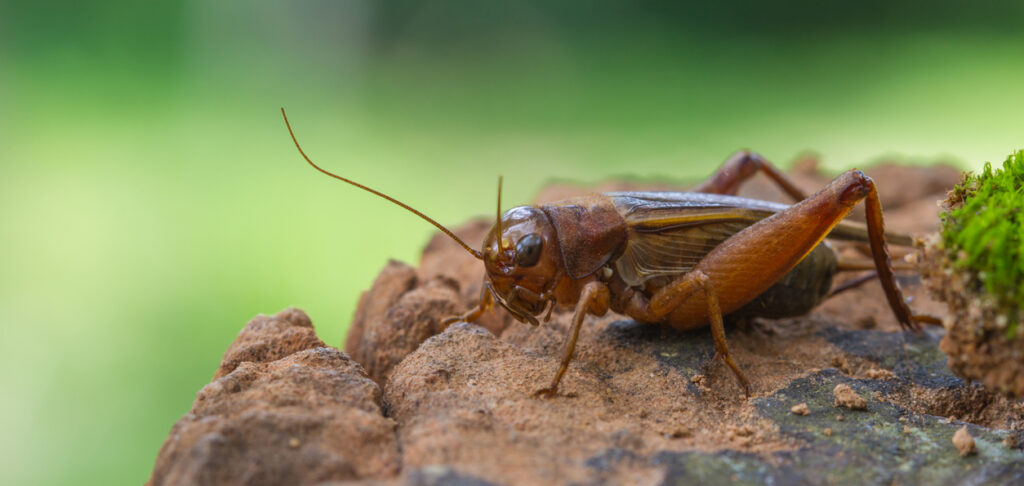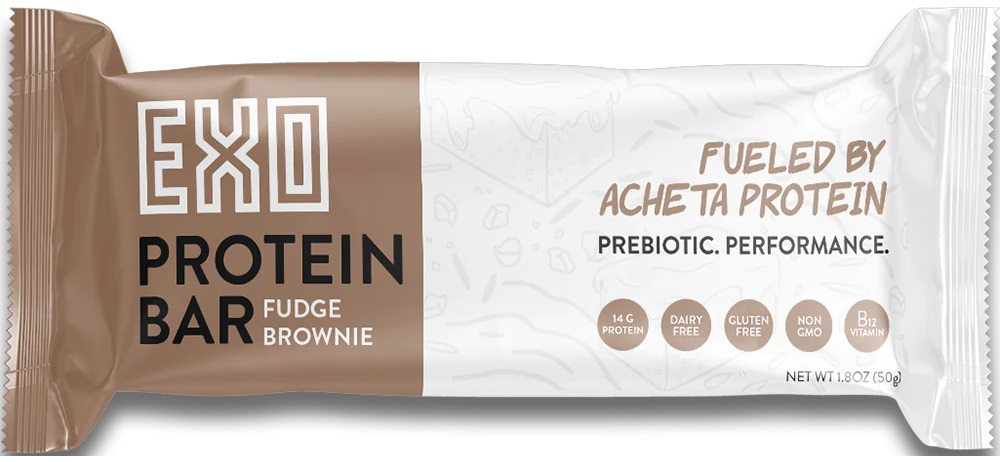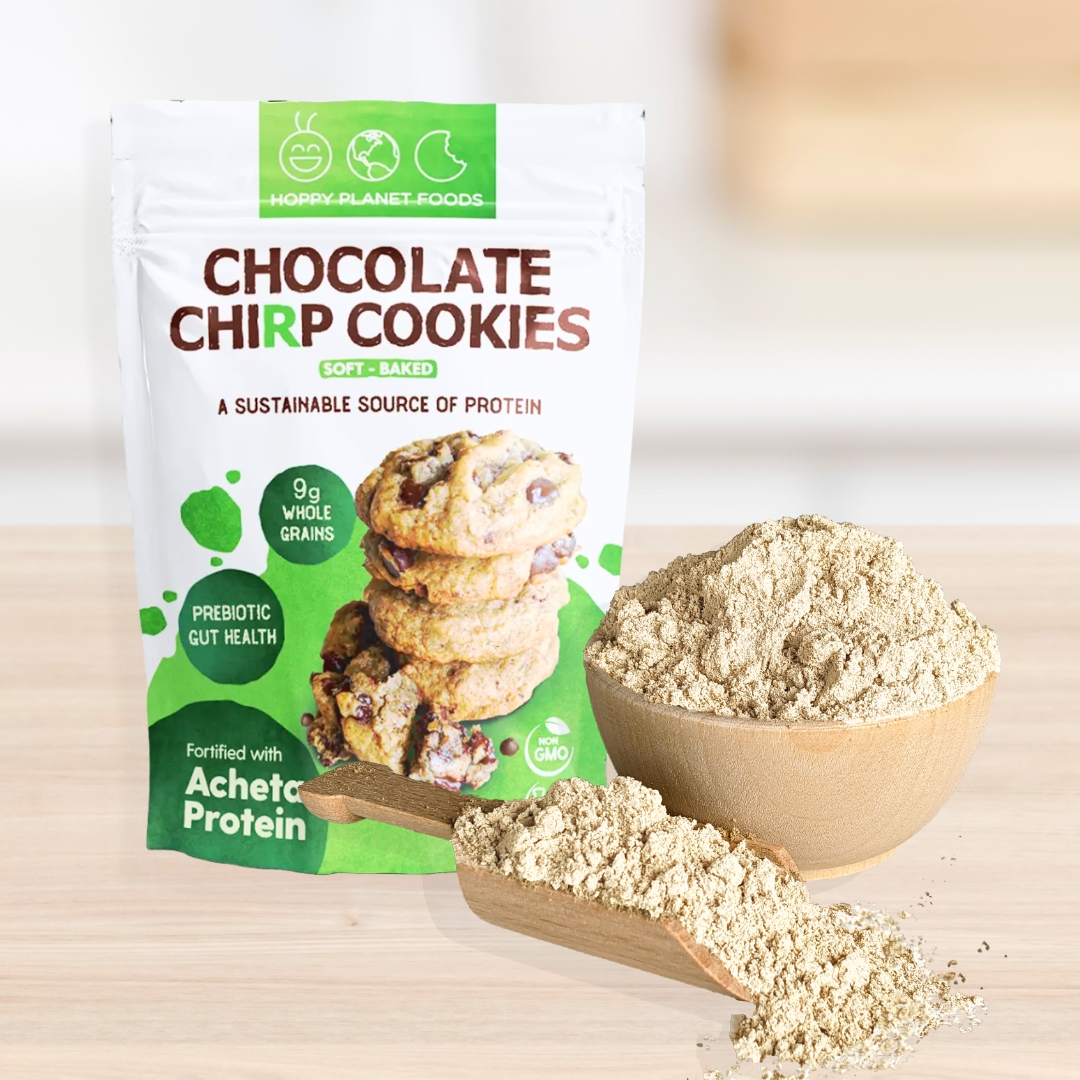Patent-pending technology that eliminates the earthy color, flavor and aroma of edible insects could unlock new opportunities in higher-value human food markets, claims US-based startup Hoppy Planet Foods.
While high prices and the ‘ick’ factor have held back the human nutrition market for insects to some extent, the bigger issue, according to food manufacturers Hoppy Planet has talked to, is the quality of the raw materials, founder and CEO Matt Beck told AgFunderNews.
“I was chatting with the R&D team [at a major confectioner] and they said they had tested insect protein some years ago but couldn’t get past the flavor issues and just moved on, so that’s before you even have a conversation about price or consumer acceptance. We showed them our product [a de-colorized spray-dried cricket protein powder with a neutral flavor and aroma], and they were blown away.
“This doesn’t mean they’re going to pop out a product [featuring cricket protein] tomorrow but it means we’ve removed material barriers for them.”

Neutral color and taste
Historically, producers have tended to roast and mill crickets to create a coarse, dark-colored powder that works well in petfood and animal feed, but has fairly limited applications in human foods, said Beck, who worked in sales at PepsiCo for six years and at Google for a further six years helping food and beverage companies build data and media strategies before founding Hoppy Planet Foods in 2019.
The other approach is wet milling crickets into a slurry and spray drying them to create a finer power that’s “more usable,” said Beck. “But it’s still some way short of being a widely applicable human food ingredient. We figured out how to use the right acids and organic solvents to de-colorize the protein and remove those off tastes and aromas, without impacting the underlying nutritional value.
“With our process [which also uses wet milling and spray drying], we end up with an off-white powder that has no taste that can be used in a far wider number of food applications. It doesn’t require bespoke equipment or ingredients and it doesn’t leave any residue in the final product. It really is just a bit of smart organic chemistry, but we have a provisional patent in place that we will flip to a full patent this year.
“We are now in conversations with very large insect producers about potentially processing for them or them using our technology under license to create insect protein for human food applications.”

Unlocking a wider market
With this tech innovation, Beck is now looking to build a larger b2b business in addition to selling cricket-fueled snacks under the Hoppy Planet brand (sold through brick & mortar retailers including Albertsons and Kroger) and EXO protein brand (primarily an e-commerce operation).
“We’ve seen really nice interest from consumers with little to no marketing and our products continue to move at or above retailer benchmarks, so that’s a really positive sign,” said Beck. “But we’re also aware that it’s going to take a long time and a lot of money to get our brands into 20,000 stores, so that led us to really dive into protein development work specifically to expand the human food market.
“Right now, insect protein is really an industrial agricultural ingredient mostly used for animal feed, aquaculture and petfood, but by positively impacting the sensory elements of the protein we think we can unlock a far wider market.”
Cost and consumer acceptance
But what about cost and consumer acceptance? Even with a superior product, is Beck still running uphill?
“It’s a fair question,” said Beck, who currently buys frozen insects in bulk from a variety of insect farmers and processes them to his specifications via co-packers. “But we’ve shaved down cost tremendously so it’s probably half of what it was even two years ago. It’s still more expensive than whey protein, but now it’s within striking distance.”
As for consumer suspicion of insect proteins, he said, “That’s the whole reason we put the Hoppy Planet brand into the market in the first place, to prove that there is a market for these products. People get the value proposition, the quality of the protein, the prebiotic and gut health piece, the sustainability piece. They care way more about that than they do about the fact that this protein came from a cricket.
“We’re not seeing that ick factor. We have tremendously high sample to conversion rates from instore demos, particularly in the younger cohorts.”
Cashflow positive
As for the economics of running an edible insect operation, he said, “We have not adopted a tech model, where you light money on fire and hope things will turn out eventually… we hit cashflow positive unit economics as a company early in 2023, so our products are self-sustaining.
“We did some friends and family fundraising and a pre-seed round in the spring of 2022, but we have not raised much money so far. For future R&D projects we need funding, so we’re raising now, but that’s a much better use of capital than needing money to keep the lights on.
“We’re a structurally sound business for folks to invest in with patented IP and a new b2b approach, which is more enticing and scalable for investors.”
He added: “There are a few people who have told us they don’t want to get involved in insect protein, but honestly that’s the minority. If we went out there and said we’re trying to make an alternative protein burger with crickets, the response might not have been very welcoming. But we’re talking about how our proteins can fortify grain-based foods from ramen noodles and pasta to bread to bars to cookies to muffins and protein powders, and that’s a much more attractive market.”
Insects in human food applications
While Innovafeed and Entobel (black soldier flies) are primarily focused on animal feed markets, and Aspire (crickets) is mainly targeting the North American petfood industry, several players are turning their attention to human food applications.
Notably, Vietnam-based Cricket One is targeting human and petfood markets with its cricket products, while Ÿnsect recently signed a memorandum of understanding (MOU) with Korean food company LOTTE to explore human food applications for mealworms as part of a “focus on high value markets to enable us to reach faster profitability.”
According to Ÿnsect VP communication and public affairs director Anais Maury, “Our clients integrate insect protein into energic bars, shakes, cereals, and burgers. The mealworms are rich in protein, healthy fats, and other essential nutrients, making them a valuable ingredient for a wide range of food products.”
Mealworms also have potential in performance nutrition, said Maury, citing a human study conducted at Maastricht University showing that mealworm protein and milk protein concentrate performed equally well in tests of muscle protein synthesis rates post exercise.
Animal studies also suggest mealworms can lower cholesterol in hyperlipidemic rats, although more research is needed to determine if there are similar benefits for humans, she claimed.





